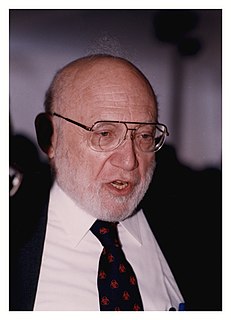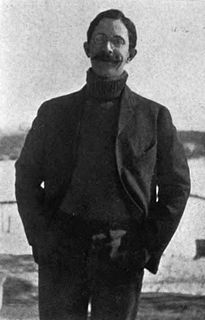A Quote by Andrew Weil
As any doctor can tell you, the most crucial step toward healing is having the right diagnosis. If the disease is precisely identified, a good resolution is far more likely. Conversely, a bad diagnosis usually means a bad outcome, no matter how skilled the physician.
Related Quotes
On moral grounds, I think that if you believe a certain outcome is a very possible outcome, you have an obligation to tell people that. With global warming, the probability of a bad outcome if we stay on our current emission trends is incredibly high. If you know a bad outcome is likely to happen, what right do you have not to communicate that? You go into a doctor's office, what are they going to do - not tell you the diagnosis?
There are just four kinds of bets. There are good bets, bad bets, bets that you win, and bets that you lose. Winning a bad bet can be the most dangerous outcome of all, because a success of that kind can encourage you to take more bad bets in the future, when the odds will be running against you. You can also lose a good bet no matter how sound the underlying proposition, but if you keep placing good bets, over time, the law of averages will be working for you.
When a physician is called to a patient, he should decide on the diagnosis, then the prognosis, and then the treatment. ... Physicians must know the evolution of the disease, its duration and gravity in order to predict its course and outcome. Here statistics intervene to guide physicians, by teaching them the proportion of mortal cases, and if observation has also shown that the successful and unsuccessful cases can be recognized by certain signs, then the prognosis is more certain.
Few diseases present greater difficulties in the way of diagnosis than malignant endocarditis, difficulties which in many cases are practi- cally insurmountable. It is no disparagement to the many skilled physicians who have put their cases upon record to say that, in fully one-half the diagnosis was made post mortem.
Doctor Johnson said, that in sickness there were three things that were material; the physician, the disease, and the patient: and if any two of these joined, then they get the victory; for, Ne Hercules quidem contra duos [Not even Hercules himself is a match for two]. If the physician and the patient join, then down goes the disease; for then the patient recovers: if the physician and the disease join, that is a strong disease; and the physician mistaking the cure, then down goes the patient: if the patient and the disease join, then down goes the physician; for he is discredited.
And it has been sarcastically said, that there is a wide difference between a good physician and a bad one, but a small difference between a good physician and no physician at all; by which it is meant to insinuate, that the mischievous officiousness of art does commonly more than counterbalance any benefit derivable from it.



































